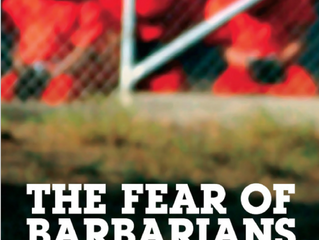

The Beginning of All Things: Science and Religion
In an age when faith and science seem constantly to clash, can theologians and scientists come to a meeting of minds? Yes, maintains the...


The Fear of Barbarians: Beyond the Clash of Civilizations
The relationship between Western democracies and Islam, rarely entirely comfortable, has in recent years become increasingly tense. A...


The Better Angels of Our Nature: Why Violence Has Declined
Selected by The New York Times Book Review as a Notable Book of the Year. The author of The New York Times bestseller The Stuff of...


From Animals into Gods: A Brief History of Humankind
In the past, culture was a kind of vital consciousness that constantly rejuvenated and revivified everyday reality. Now it is largely a...


Notes on the Death of Culture: Essays on Spectacle and Society
In the past, culture was a kind of vital consciousness that constantly rejuvenated and revivified everyday reality. Now it is largely a...





















